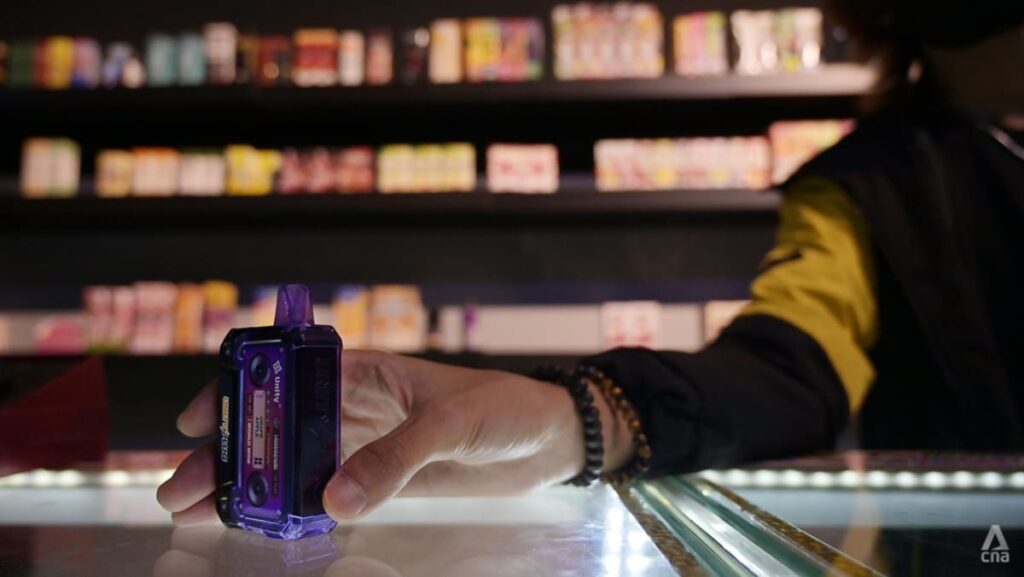He claimed to be unaware that vapes were banned in Johor.
“I am just the manager of this store, but the owner has never informed me (of) anything about this being illegal,” he said.
He told CNA that nine in 10 of his customers were Singaporeans and that many pre-order in advance when new stock arrives.
Experts told CNA that shops like these, including those in B-point, have exploited loopholes in the state law by registering for licenses to sell other products, but they would also offer vape products as a significant portion of their business.
Dr Leevyadhashiny Ganasan, medical officer and community health lead for the National Cancer Society of Malaysia (NCSM), told CNA that such instances are inevitable as the vape business is lucrative and businessmen would eagerly exploit any legal loopholes to continue selling.
“If they ban this and (close the loopholes), the businesses would find some other way to sell their products. From the public health perspective, the challenge is to keep it clean, eradicate all these (loopholes),” said Dr Ganasan.
A large customer base of these businesses are Singaporeans.
Johor’s southern neighbour banned the consumption and sales of vapes in 2018.
According to statistics released by Singapore’s Immigration and Checkpoints Authority (ICA) and Health Sciences Authority (HSA), 3,840 people were caught possessing or using vapes in the third quarter of this year, a 52 per cent hike from the previous quarter.
The ICA and HSA said they had conducted several joint operations at the air, sea and land checkpoints as enforcement.
Under the Tobacco Act, the possession, use or purchase of e-vaporisers, or vapes, in Singapore carries a maximum fine of S$2,000 (US$1,493).
It is also an offence to import, distribute, sell or offer vapes and their components for sale.
A person convicted of this offence may face a fine of up to S$10,000, a jail term of up to six months, or both, for the first offence. The maximum fine and jail term are doubled for a subsequent offence.
Over on the east side of Johor Bahru in Pasir Gudang, CNA visited a store that was marked on Google Maps as a “shop that sells vapes nearby”.
The store, located on the second floor along a row of shophouses, had no signboard. It was listed as an office space in the building’s directory. The store was also locked from the inside but CNA was allowed to enter by the store’s manager who wanted to be known only as “Edge”.
Read the full article here

